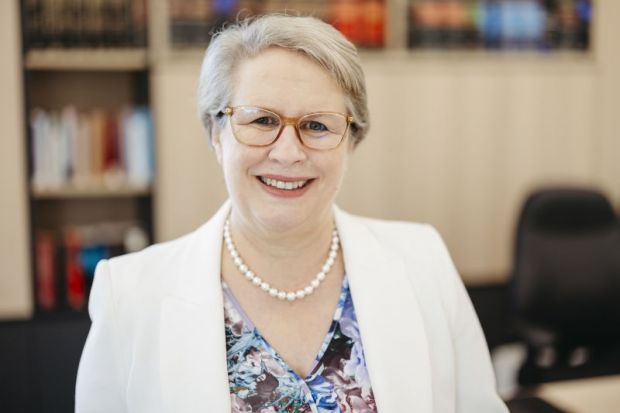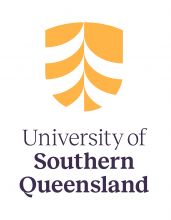Geraldine Mackenzie may live relatively close to campus, but she has no trouble putting herself in the shoes of students whose homes are nearly a nine-hour drive away.
“They could never come in and do classes and drive back,” says Mackenzie, vice-chancellor of the University of Southern Queensland, where nearly 70 per cent of students are taught online.
Based in the smaller city of Toowoomba, which is two hours outside the state capital, Brisbane, the university’s main campus location is “not remote but regional”, she says, noting its two other campuses on the outskirts of Brisbane.
Itself somewhat removed from an urban centre, the Australian institution is committed to delivering education to students in more remote regions of Queensland, many of whom live in towns too small to justify a branch campus.
Why shouldn’t students just move to urban campuses for their education? Mackenzie feels it is important to let young people live in their communities without uprooting them for education.
“Students training in the capital cities, they usually want to stay in the capital cities,” she says, adding that they often make friends, find partners and build a life in these places. As a result, it grows harder to get them to return to less populous areas – leading to a depletion of the local workforce.
Distance learning is a hack of sorts, according to Mackenzie. “The only way to get enough professionals [in the regions] is to educate them in the regions,” she says.
It seems fitting that Mackenzie’s own path to university administration began as an outgrowth of this conviction. In 2007, the lawyer-turned-professor became the inaugural head of the university’s law school, which was set up because the legal workforce in Toowoomba was struggling to retain lawyers from nearby cities such as Brisbane.
“It [the law school] was very strongly supported by the legal profession, because they knew they would get a lot of the students to stay in Toowoomba. And that’s exactly what happened,” Mackenzie says.
That logic of retention also applies for other professions in regional communities, she says. “It’s the same for health; it’s the same for education; the same for business.”
Regional institutions such as Southern Queensland, Mackenzie says, are a “huge contributor” to the local economy, working closely with the regional community to respond to its needs. Local employers immediately snap up graduates, giving the institution an enviably high graduate employment rate of more than 95 per cent.
But strong demand for graduates is only half the reason behind the high student employment rates. The other part, according to Mackenzie, is the flexibility of distance learning.
“Flexible study options enable students to dip in and out of employment while they’re studying, which means that they’ve then got the exposure and the experience to go for a job,” Mackenzie says, adding that the university has also grown a cohort of students who are reskilling.
She talks about one such student who was an electrician but had always wanted to study engineering; another who was a teacher keen to switch to law. Distance learning gives people the opportunity to change careers or to improve their own trade, she believes.
Like many of the country’s former technical institutions, Southern Queensland gained university status in 1992. Its longstanding commitment to cultivating a workforce for the regions and collapsing Australia’s long distances meant that it was already ahead of its peers in online education before Covid. When the pandemic struck, most higher education institutions had to scramble to shift their learning online, but Mackenzie says her team found the transition “seamless”.
“We had the experience. We had the pedagogy. Our staff were experts at flexible delivery and online learning,” she says.
Far from struggling to figure out the basics of how to teach online, the institution has moved on to the stage of trying to make digital learning more exciting and effective.
“It’s not just recording a lecture – it’s a really meaningful and interactive online experience,” Mackenzie says of the university’s vision for online education.
In recent years, it has rolled out a nursing programme that it delivers “end to end” through remote learning, in partnership with a rural hospital in Charleville, western Queensland. Local students can remain in the region and conduct much of their clinical work – which would typically be done on the main campus – at the rural hospital unit. The new format blends online learning and practical experience while allowing students to stay near home.
Mackenzie emphasises the importance of education in rural and regional medicine. “It’s a very different way of working because of the distance to get people to go into regional areas,” she says. In such places, the nearest hospital is often hours away and facilities are not at hand.
In another innovative example of distance education, the university is using simulators to teach subjects such as hydraulics engineering. Although the machines are located in a laboratory on campus, students are able to control them from their homes.
“It means that they are able to have an experience as if they’re in the room operating that machine. They can operate it via the computer and see the water flow,” the vice-chancellor says.
Having built up expertise in online education over two decades, Southern Queensland has been challenging myths about distance education by modernising it while holding on to convictions about keeping education regional, Mackenzie believes.
International students make up only about 10 per cent of enrolments at the university. So in the pandemic, when most national level Australian institutions were reeling from the loss of student numbers and international student fees, Southern Queensland did not feel that it had “this enormous hole that we had to somehow fill”.
In a reversal of how many higher education leaders think today, Mackenzie is clear that recruiting international students is not a top priority for her institution.
“We’ve always focused on our domestic students and our communities, and the international students that we do have really enhance those communities. But it’s not our purpose for being; it’s the other way around.”
Having spent much of her career in the regional parts of the country, she knows personally the value of staying near to home rather than migrating to a metropolis. “Being really close to your community gives you this really strong sense of value of what you’re doing. And it enables you to be really close to the community and be able to fulfil their needs so much more easily.”
But even as education transforms regional economies, it is also transformative for the families and students involved. “We hear many times from people who graduated right back in the early 1970s that their parents could never have afforded to send them to Brisbane,” she says.
Because these alumni stayed put, they added to the professional and intellectual life of their communities – something Mackenzie is committed to continuing.
“Many of the engineers and teachers and other businesspeople who are in Toowoomba now or in the regional areas are there because of us,” she says.
tiya.alexander@timeshighereducation.com
This is part of our “Talking leadership” series with the people running the world’s top universities about how they solve common strategic issues and implement change.Follow the series here.
Register to continue
Why register?
- Registration is free and only takes a moment
- Once registered, you can read 3 articles a month
- Sign up for our newsletter
Subscribe
Or subscribe for unlimited access to:
- Unlimited access to news, views, insights & reviews
- Digital editions
- Digital access to THE’s university and college rankings analysis
Already registered or a current subscriber? Login










